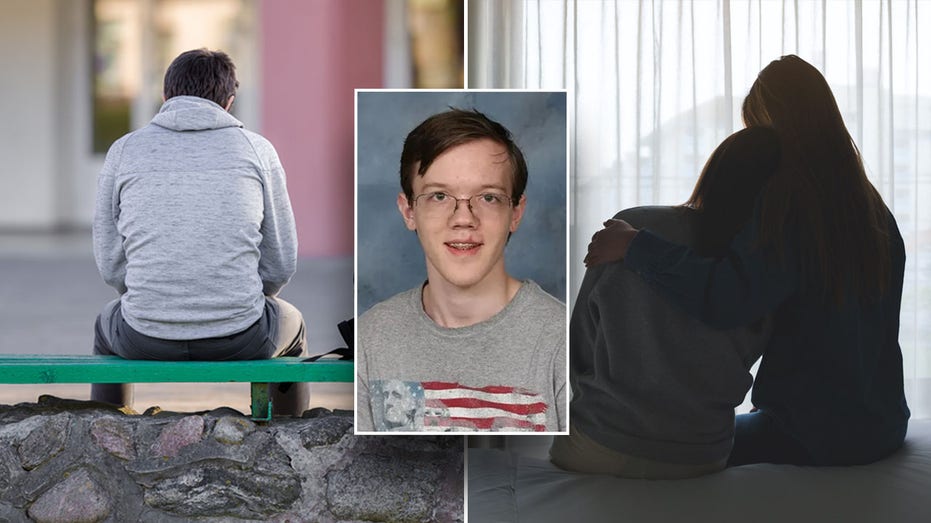Ever since Thomas Matthew Crooks attempted to assassinate former President Donald Trump on July 13, a picture has emerged of his social behaviors and possible mental state.
Some residents of Bethel Park, Pennsylvania — the small Pittsburgh suburb where Crooks lived with his parents — have described the shooter, 20, as a “loner” when speaking to local news outlets.
An evaluation of Crooks’ phone revealed that he had previously searched for symptoms of depressive disorder, according to reports.
During a press conference call with reporters on Monday, Kevin Rojak, special agent in charge at the FBI’s Pittsburgh field office, described Crooks as a “loner, as far as his association or any other activities related to his mental state.”
“His primary social circle appears to be limited to his immediate family, as we believe he had few friends and acquaintances throughout his life,” Rojak said.
Jason Kohler, who attended the same high school as Crooks, described the shooter to Fox News as an “outcast” who was always alone and was “bullied every day.”
Kohler told reporters that Crooks sat alone at lunchtime and was mocked for his clothing, which often included “hunting outfits.”
TRUMP’S SURVIVAL WAS ‘MIRACULOUS’ GIVEN BULLET’S PROXIMITY TO HIS BRAIN, DOCTOR SAYS
Looking back, some classmates said, there were warning signs that Crooks could have had the capacity to plan the type of violent attack that left one man dead, wounded two people critically and injured a former president of the United States.
“The signs were there, and somebody definitely had to have known,” said Vincent Taormina, another former classmate of Crooks, in a previous interview with Fox News Digital.
Jonathan Alpert, a Manhattan-based psychotherapist and author, pointed out that many loners are “absolutely harmless.”
“Being a loner in itself is not at all a dangerous trait,” he told Fox News Digital via email on Monday. “Withdrawing from society and extreme isolation can be indicative of depression, and that’s it.”
In some cases, however, people who are known to be loners can be “quite disturbed,” Alpert noted.
“Any extreme behavior or erratic shifts in mood suggest emotional instability and should not be taken lightly, especially if the person has a history of hostility directed at others or society,” the expert said.
“Enter into the mix obsessions with violence, weapons or death — and you have an individual with potential to inflict harm on others.”
Paranoid or delusional thinking can heighten the risk, Alpert warned, from these individuals — “especially if they think they have a special mission to carry out or if they think others are out to get them.”
Dr. Judy Ho, associate professor and IRB chair at Pepperdine University in California, agreed that preferring to be alone is often just a personality trait, and not always a sign of potential danger.
“Sometimes people like to have some alone time to recharge, because being with people all the time is exhausting to them,” she said.
TRUMP SHOOTING: ‘GOD’S HAND OF PROTECTION WAS ON HIM,’ SAYS REV. FRANKLIN GRAHAM, OTHERS
“This is the traditional ‘introvert’ style, where they do like being with people in small doses and tend to feel more relaxed when they have ample alone time.”
Some people also tend to isolate due to depression, she noted, which often comes with signs of a down mood, loss of interest in activities they usually enjoy, irritability, low self-esteem or feelings of worthlessness, sleep and appetite changes, complaints of fatigue, and/or even suicidal ideation or self-harm attempts.
“A more dangerous ‘loner’ mentality would involve some specific elements, such as acting like they are harboring a big secret, expressing that they feel disenfranchised or lost, or having strong feelings of people ‘wronging’ them and expressing wishes that people should pay for these types of bad deeds,” Ho said.
DEPRESSION AND ANXIETY MAY IMPACT YOUNG ADULTS TWICE AS MUCH AS TEENS, HARVARD SURVEY FINDS
Other telltale signs might include lacking a specific purpose or drive, desiring power but feeling like they lack it, and spending hours studying conspiracy theories or getting into hobbies that have some sense of danger or riskiness to them, according to Ho.
Judy Gaman, CEO of Executive Medicine of Texas and a healthy living expert, reiterated the distinction.
“Everyone gets the blues from time to time, and depression can be linked to many things such as trauma or hormone fluctuations,” she told Fox News Digital.
“Transient mood changes are far different than the personality disorders that are seen in what we often term ‘loners,'” she went on.
“The loner type personality is anti-social, often angry at the world or a specific group of people, and may have a history of being bullied or abused as a child.”
If you suspect that someone you know is a loner and exhibits the warning signs shared above, there are steps you can take to help avoid escalation.
“Take note of the specific behaviors and patterns that lead you to believe he or she poses a threat,” Alpert suggested.
As part of this assessment, it’s important to avoid acting on assumptions, he added.
“All too often, people are quick to conclude, erroneously, that someone is prone to certain behaviors simply based on how they look — for example, not everyone dressed in black is potentially a school shooter,” Alpert said.
The best way to begin, according to Ho, is to share observations of some concerning behaviors without interpreting what those behaviors might mean.
“Express that you are concerned about the person and ask what’s going on, and allow silence so they can fill the space and share their thoughts,” she advised.
“Once they’ve shared, ask what you can do to help, rather than assuming what you should do, or what you might want, because it can be different than what they really want,” Ho recommended.
Consider volunteering to go with the person to talk to a mental health professional or other trusted individuals if they are open to that, the doctor suggested.
CLICK HERE TO SIGN UP FOR OUR HEALTH NEWSLETTER
“The stigma against mental illness is still really prevalent, so sometimes knowing they are not judged for sharing their vulnerabilities will mean everything to them,” Ho added.
If you truly suspect that someone poses a danger to others, it’s best to avoid direct confrontation with the person, Alpert said.
“You don’t want to set them off,” the expert warned. “Instead, contact the authorities with your concerns.”
Teachers, parents and health care providers should all be paying extra attention to mental health warning signs, added Gaman.
“We often don’t want to intrude or violate someone’s privacy, but by saying something when you see something concerning — whether to the person directly and/or to law enforcement — you can possibly save their lives as well as those of others,” Ho said.
“Don’t underestimate what you can do to help someone who is suffering. Just lending a helping ear is often enough for them to step back and see the big picture, and find a reason for hope and to continue on.”
If Crooks’ isolation was a factor in his decision to commit the attempted assassination on July 13, that highlights the importance of social support for mental health, experts agree.
“Community is important to all people,” Ho told Fox News Digital.
For more Health articles, visit www.foxnews/health
“Everyone needs to feel like they belong to something bigger than themselves, and that they have people who care about them,” she went on.
“Even if it is just a very small group of friends, it’s important for every human being to feel like they have a few trusted individuals they can rely on.”
Audrey Conklin and Christina Coulter, both of Fox News Digital, contributed reporting.
Article Source: Health From Fox News Read More




